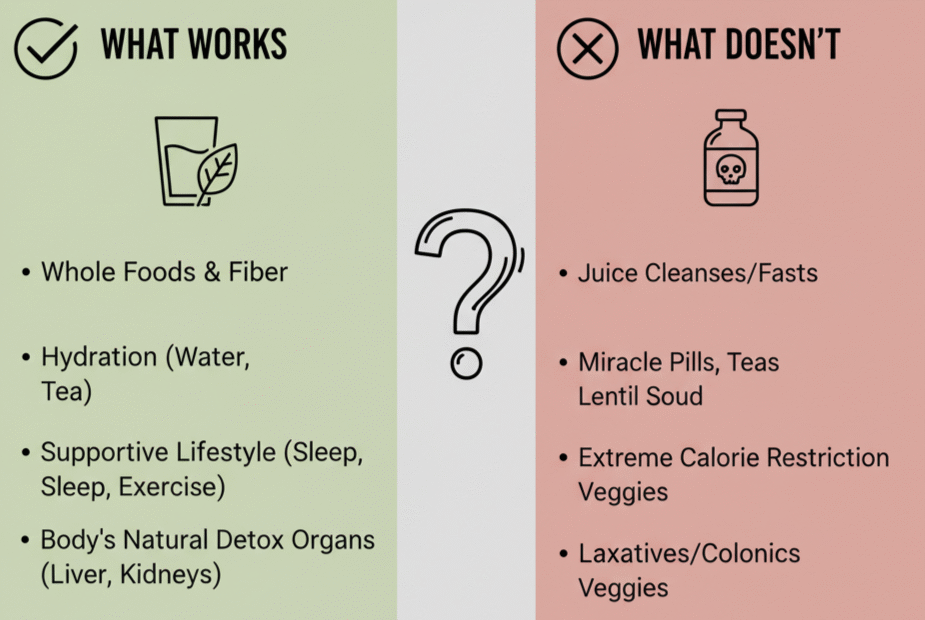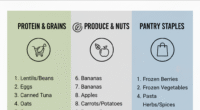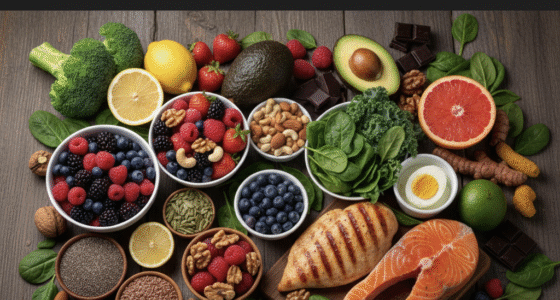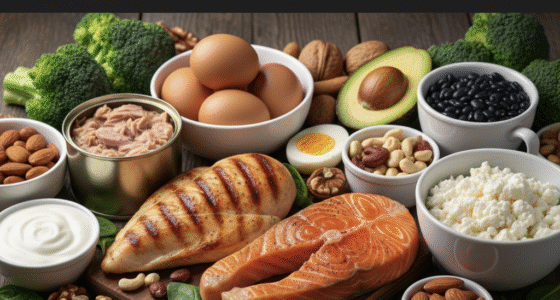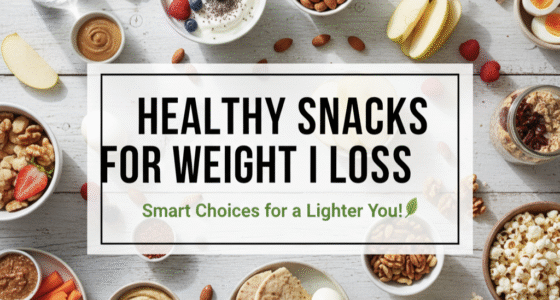Detox diets have become one of the most popular health trends in recent years. From juice cleanses to herbal teas and expensive detox programs, people are always looking for ways to flush out toxins, lose weight quickly, and feel healthier. But how much of this is real science, and how much is just marketing hype? In this article, we uncover the truth about detox diets—what works, what doesn’t, and how you can support your body naturally.
What Are Detox Diets?
Detox diets claim to remove harmful toxins from the body, improve digestion, and jump-start weight loss. They usually involve short-term restrictions like consuming only juices, smoothies, soups, or specific supplements. The idea sounds appealing, but most of these diets oversimplify how the body’s natural detoxification system already works.
How the Body Naturally Detoxes
Your body already has a powerful built-in detox system. The liver, kidneys, lungs, digestive tract, and skin all work together to eliminate toxins every day. For example:
- Liver: Filters blood, breaks down chemicals, and processes nutrients.
- Kidneys: Remove waste through urine.
- Skin: Eliminates toxins through sweat.
- Digestive system: Flushes out waste and supports gut health.
This means that if your organs are functioning properly, your body doesn’t need extreme detox programs to “cleanse” itself.
What Works in Detox Diets
While many detox claims are exaggerated, some elements of detox diets can be beneficial when applied correctly:
- Increased Hydration: Drinking more water helps the kidneys flush out waste efficiently.
- More Fruits and Vegetables: Plant-based foods are rich in antioxidants and fiber, which support digestion and reduce inflammation.
- Reduced Processed Foods: Cutting out junk food, alcohol, and sugary drinks improves energy levels and supports natural detox pathways.
- Short-Term Reset: Some people find that a few days of clean eating helps break bad habits and improves motivation.
What Doesn’t Work
Unfortunately, many detox diets make promises they cannot deliver. Here’s what usually doesn’t work:
- Extreme Juice Cleanses: Consuming only juices for days can lead to nutrient deficiencies and unstable blood sugar.
- Detox Supplements: Pills, powders, or herbal teas marketed as “toxin flushers” often have little scientific backing and may even be harmful.
- Rapid Weight Loss Claims: Most weight loss during detox diets comes from water loss, not fat loss. The weight usually comes back quickly.
- One-Size-Fits-All Detox Plans: Everyone’s body is different, so restrictive plans rarely provide long-term benefits.
Science-Backed Ways to Support Detox Naturally
If you want to help your body’s natural detox process, focus on lifestyle habits that are sustainable and proven by science:
- Stay hydrated with water and herbal teas.
- Eat a balanced diet with fiber-rich vegetables, fruits, legumes, and whole grains.
- Exercise regularly to boost circulation and sweating.
- Get enough sleep, since your body repairs and detoxifies during rest.
- Limit alcohol, processed foods, and added sugars.
Who Should Avoid Detox Diets?
Detox diets can be risky for certain groups of people. Pregnant women, individuals with chronic illnesses, people taking medication, or those with eating disorders should avoid restrictive detox plans. Always consult with a healthcare professional before starting any drastic diet changes.
Healthy Alternatives to Detox Diets
If your goal is to feel lighter, have more energy, and lose weight safely, you don’t need an expensive detox program. Instead, try:
- Balanced Meal Plans: Follow structured plans with lean protein, whole grains, and vegetables.
- Intermittent Fasting: Time-restricted eating can improve digestion and fat metabolism.
- Meditation and Stress Management: Reducing stress helps balance hormones and supports overall wellness.
- Daily Movement: Even walking or yoga can aid digestion and circulation.
Conclusion
The truth about detox diets is simple: your body already knows how to detoxify itself. While some detox-inspired habits like drinking more water and eating vegetables are helpful, extreme cleanses and supplements are unnecessary and potentially harmful. Instead of looking for quick fixes, focus on building sustainable lifestyle habits that support your liver, kidneys, and overall health. Real, long-term wellness comes from balance—not from fad detox plans.
